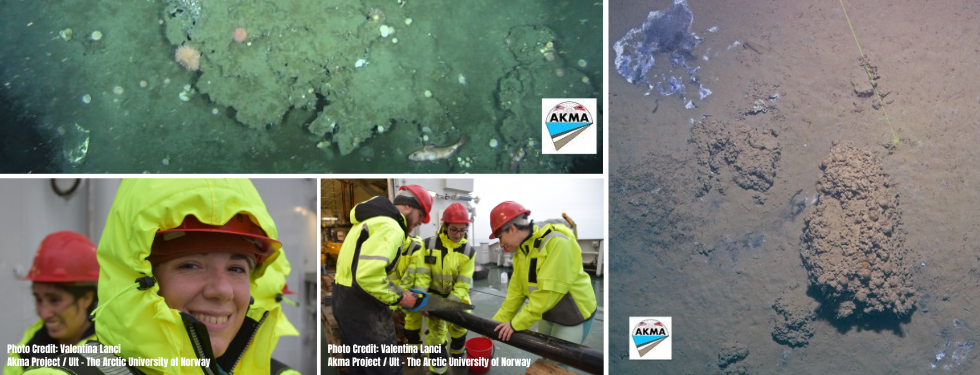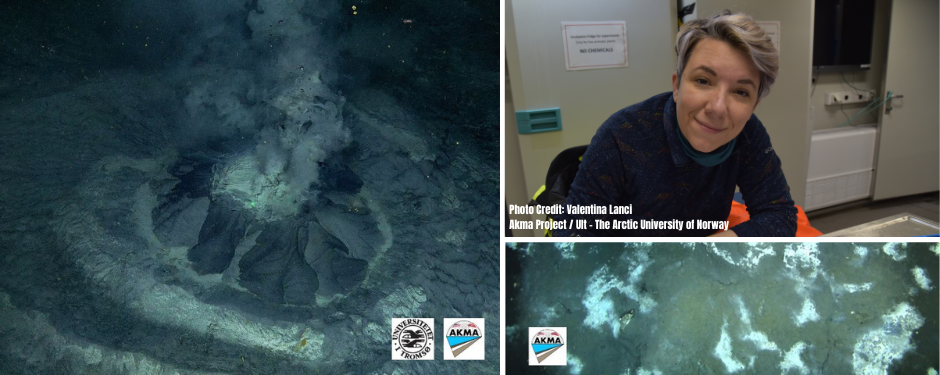Borealis Mud Volcano: a surprising geological finding in the Barents Sea

An international team of researchers, led by UiT The Arctic University of Norway, has discovered a new mud volcano in Norwegian arctic waters, at 400 meters of depth. The discovery was made in the framework of the AKMA 3 project (Advancing Knowledge of Methane in the Arctic) oceanographic expedition, whose goal is to better understand natural methane emissions in the Arctic.
The mud volcano, named Borealis, is the second ever found in Norwegian waters and it can have a crucial role in the comprehension of the geological processes taking place deep inside the Earth's crust.

To find out more we interviewed Giuliana Panieri, professor of Geology at the Arctic University of Norway and Irene Viola, master's degree student in Geophysics for Natural Risks and Resources at the Department of Geosciences of the University of Padua, who participated in the AKMA 3 mission in scope of an internship and thesis work.
“We had an expedition in May and we were focusing on sites in the Barents Sea that are characterized by natural methane emission. This expedition had scientists and students on board and its main goal was a better comprehension of what is going on when there is methane, naturally emitted from the seafloor. One day we were focusing on an area where we knew that there were big craters and also indications of active methane emissions. We targeted sites with methane but we did not expect to see Borealis”, Professor Giuliana Panieri said.
“As a geology when you see our planet in action it’s just fantastic. Borealis is interesting because it is a window to the interior of the Earth and it will be very interesting to see the results of all the analysis that we are performing in these days”, Professor Panieri added.
The AKMA project is also characterized by a strong multidisciplinarity and it involved a large number of students and young researchers from all over the world. The team also includes Irene Viola who has been at the University of Tromsø since March.
“It was amazing because you are on the vessel with some of the best scientists about Arctic and methane emission and you can acquire skills even in sectors that are not part of your previous training. For example, I come from a geological and geophysical background but I also helped a lot in the laboratory of the biological area and it was a really fantastic experience because you can really feel the multidisciplinary connections between all the scientific areas”, explains Irene Viola.
The AKMA project started in 2019 and will end at the end of 2023. "In recent years, a good team of researchers has been created, both senior and early career, and we also collaborate together on the implementation of various funding proposals because we need resources to continue with these expeditions. We therefore hope to carry on these studies because we would also like to go back and see Borealis closely and understand if there are other mud volcanoes in that area”, concludes Professor Giuliana Panieri.
Intervista di Barbara Paknazar





